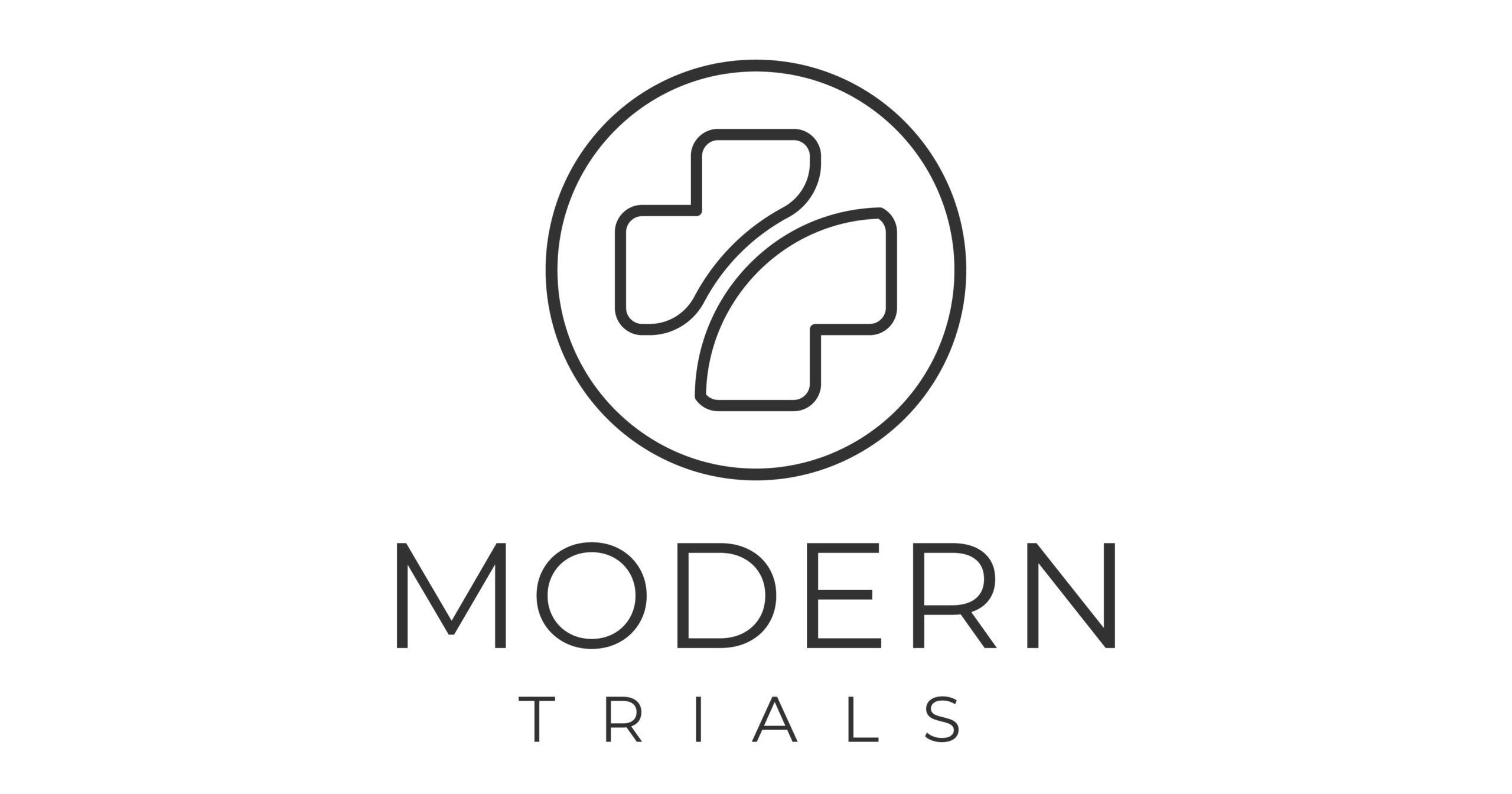
Modern Trials®, a startup aiming to transform clinical trial-patient matching, is collaborating with leading healthcare technology provider InterSystems® by issuing a challenge to assess Modern Trials’ EHR-based recruitment relative to current recruitment methods.

Dr. Chris Ochner, Co-Founder of Modern Trials
Co-founded in 2019 by Dr. Christopher Ochner, Modern Trials aims to match patients with clinical trials that could potentially save their life by connecting patients in need of advanced treatment options through democratizing access to clinical trials. They ingest the healthcare organization’s patient data and then make it searchable for their life science customers, clinical trial managers, in a private and secure manner.
Modern Trials is preparing a $2.4M NIH grant application that requires a healthcare organization partner with clinical trials to execute a Data Use Agreement to test grant aims.The challenge will be a head-to-head comparison to see which method results in more enrollees, more enrollees in traditionally underrepresented groups, more representative samples, and higher completion rates. Financial compensation will be provided to the partner healthcare organization.
“Grants like this are vital to provide the support necessary to determine, with real world data, the best method of democratizing access to advanced therapeutics. Until now, fewer than 15% of patients in need have had access to such opportunities,” Dr. Christopher Ochner told South Florida Tech Hub.
“Modern Trials extends its gratitude to South Florida’s Tech Hub’s ongoing support as we aim to bring these opportunities to all patients no matter who or where they are.”
 The Advanced Research Projects Agency for Health (ARPA-H), an agency within the U.S. Department of Health and Human Services (HHS), announced October 2023 that it will take action to improve the nation’s ability to conduct clinical trials safely, quickly, and equitably and to improve clinical trial access for people in communities across the country as the first initiative within the recently launched ARPANET-H Health Innovation Network.
The Advanced Research Projects Agency for Health (ARPA-H), an agency within the U.S. Department of Health and Human Services (HHS), announced October 2023 that it will take action to improve the nation’s ability to conduct clinical trials safely, quickly, and equitably and to improve clinical trial access for people in communities across the country as the first initiative within the recently launched ARPANET-H Health Innovation Network.
The goal of Advancing Clinical Trial Readiness (ACTR) is to enable 90% of all eligible Americans to take part in a clinical trial within a half hour of their home. To do so, ACTR will leverage the nationwide capabilities and reach of the ARPANET-H Customer Experience Hub by pursuing activities with a diverse array of stakeholders in order to advance, integrate, and extend clinical trial capabilities that overcome challenges in evaluating new technologies, therapies, and platforms.
“Clinical trials are essential to evaluating potentially life-saving breakthroughs and getting them to patients, including in times of rapid response, such as during national emergencies,” said ARPA-H Director Renee Wegrzyn, Ph.D.
“The Advancing Clinical Trial Readiness initiative activates the ARPANET-H health innovation network as we work with organizations from across the country to advance technologies and insights to create a robust national clinical trial infrastructure.”
Working together with patient volunteers, clinical trials help researchers understand what treatments work, gathering a variety of data to help identify better ways to improve patients’ health. Yet many challenges in conducting clinical trials are slowing the speed at which new treatments can get to patients, such as lack of interoperability across electronic health records, enrollment processes that can lead to non-representative study populations, complex study protocols, lack of access to people living in certain parts of the United States, and the myriad and inconsistent variables involved in running trials in real-world settings, or the cost in running trials in controlled settings.
ACTR will work with groups across the country, including innovators, industry, patients, academia, hospital centers, community health centers, and non-traditional partners, such as retail pharmacies or home health innovators, to build faster, less expensive trials with decentralized processes. The effort will also build trials that operate closer to, or at, points of care and are representative of our nation’s geography, age, gender, race, ethnicity, and socioeconomic groups.
“Recent advances in technologies, including artificial intelligence, digital health technologies, and machine learning — along with open standards — enable new opportunities to increase the speed, improve access, and expand the diversity of clinical trials,” said ARPA-H Resilient Systems Mission Office Director Jennifer Roberts, Ph.D.
“Through this effort, we want to develop novel innovations to distribute common protocols across many more locations so that we can change the current paradigm and open the door to faster, cheaper, and more representative trials.”
Modern Trials offers a strong business justification for data use under the auspice of a National Institute of Health (NIH) grant project. Formal security review, Data Use Agreement (DUA), and Broad Agency Announcements (BAAs) will stipulate that data will be used only to complete project aims and destroyed upon completion (1.5-2y).
Some of the partnership requirements are:
- Healthcare system with at least 1M patient records in their electronic health record system
- 1,000 active clinical trials
- Systems located anywhere throughout the United States
With millions actively seeking answers, Modern Trials is on a mission to connect patients with the life-changing potential of clinical trials. Modern Trials is betting it can fix clinical trials!
Click here for more information on the Modern Trials Challenge and NIH Proposal Partnership Details.


